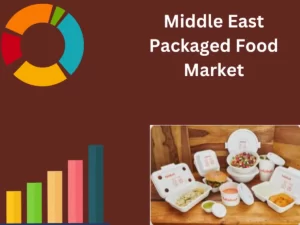© 2024 All rights reserved
Datavagyanik- Your Research Partner

Packaged food is in high demand in the Middle East for several reasons. One of the primary drivers of this demand is rapid urbanization. As more people move to cities and adopt busier lifestyles, they are looking for convenient and easy-to-prepare foods that can be consumed quickly. Additionally, many consumers in the Middle East have more disposable income to spend on packaged foods, thanks to the region’s economic growth in recent years.

Another factor contributing to the popularity of packaged foods in the Middle East is the increasing influence of Western culture. As more Western foods and brands become available in the region, consumers are becoming more accustomed to packaged foods and are more likely to incorporate them into their diets. Furthermore, many people in the Middle East are concerned about food safety, and packaged foods are often perceived as being safer and more hygienic than traditional, unpackaged foods.
Overall, the convenience, safety, and variety of packaged foods make them an attractive option for many consumers in the Middle East. As the region continues to grow and evolve, the demand for packaged foods will likely continue to increase.
Another important factor driving the demand for packaged foods in the Middle East is the region’s growing population. According to the United Nations, the population of the Middle East and North Africa is projected to increase by 50% between 2010 and 2050. This growing population is placing increased pressure on food systems in the region, leading many consumers to seek out packaged foods as a convenient and accessible source of nutrition.
In addition to the convenience and safety of packaged foods, many consumers in the Middle East are also drawn to the variety of options available. Packaged foods offer a wide range of flavours, ingredients, and preparation methods, making it easier for consumers to experiment with different cuisines and explore new tastes. As a result, many food companies are investing in research and development to create products that are tailored to the unique tastes and preferences of consumers in the Middle East, further driving the growth of the packaged food market in the region.
Packaged food refers to any food product that has been processed, packaged, and marketed for sale to consumers. This can include a wide range of products, such as bakery goods, dairy products, beverages, breakfast items, meals, and more.
Meals such as frozen dinners, canned soups, and ready-to-eat meals are another popular category of packaged food. These products are often marketed to consumers who are looking for convenient meal solutions that require little preparation. They can be found in supermarkets, hypermarkets, and retail stores, as well as through online retailers.
According to a report by the International Trade Centre, the Middle East packaged food market was valued at US$87.3 billion in 2018 and is expected to reach US$125.2 billion by 2024, growing at a CAGR of 6.4%.
Finally, there are many other types of packaged foods, including snacks, confectionery items, and condiments such as sauces and spices. These products are sold through a variety of retail channels, including supermarkets, hypermarkets, speciality stores, and online retailers.
In terms of retail channels, packaged foods can be found in a wide range of settings, including e-commerce and online stores, supermarkets and hypermarkets, conventional retail stores, and speciality stores. Each of these channels has its strengths and weaknesses, and manufacturers of packaged foods must carefully consider which channels will best serve their target markets.
Overall, packaged foods are an important and growing part of the food industry, providing consumers with a wide range of convenient, safe, and nutritious food options. `
The packaged food market in Saudi Arabia is growing due to the increasing demand for convenience and the rising disposable incomes of consumers. The country has seen a shift in consumer preferences towards packaged food products, as they are more convenient and offer a wider variety of options. Additionally, the government has implemented various initiatives to promote the consumption of healthy and nutritious packaged food products, which has further contributed to the growth of this market.
The UAE packaged food market is also growing due to the increasing demand for convenience and the rising disposable incomes of consumers. The country has seen an increase in tourism, which has led to an increased demand for packaged food products from international brands. Additionally, there is a growing trend towards healthier eating habits among consumers, which has led to an increased demand for healthier packaged food options. Furthermore, the government has implemented various initiatives to promote healthy eating habits among its citizens, which has further contributed to the growth of this market.
The middle east packaged food market has been segmented into Product and Distribution Channels.
Based on the product type, the middle east packaged food market is Bakery products, Dairy products, Beverages, Breakfast products, Meals, and Others. In 2021, Beverages held a significant share. This is because due to the pandemic, people are looking for more convenient and healthy food and beverage options. The demand for beverages has increased significantly, resulting in an increase in their share in the food and beverage industry. As a result, manufacturers are adapting to the new demand by creating innovative and healthier beverage options, allowing consumers to remain healthy while still enjoying their favourite drinks. For example, many beverage companies are now offering plant-based alternatives to traditional drinks such as cow’s milk and juices, allowing consumers to make healthier choices.
Based on Distribution Channel, the market is classified as E-commerce/Online stores, Supermarket/Hypermarkets, Conventional, and Retail stores. In 2021, the segment is expected to account for a significant share of e-commerce/online stores. This is due in part to the increased prevalence of internet access and the growing demand for convenience when shopping. Consumers are also increasingly turning to online stores for competitive prices and a wide variety of products. Consequently, businesses need to maximize their presence within the e-commerce segment to be successful and remain competitive in the market.
The acquisitions by Nestle, PepsiCo and Kellogg’s had a significant impact on the Middle East-Packaged Food company space as they all increased their presence in the market and gained access to new customers. These acquisitions also increased competition in the market as these companies now have more resources at their disposal to compete with other players in the space. Additionally, these acquisitions may have caused some smaller players in the market to struggle as they may not have been able to compete with these larger companies on price or product offerings.
By Product Type
By Distribution Channel
By Region
“Every Organization is different and so are their requirements”- Datavagyanik







© 2024 All rights reserved
Datavagyanik- Your Research Partner
Add the power of Impeccable research, become a DV client